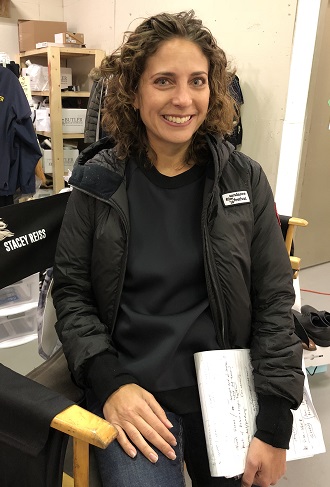
UPDATE 5/29/19: New York Times Review “The Perfection”– A Thriller in the Key of Crazy
By Patricia Caso/March, 2019
When we last spoke with filmmaker Stacey Reiss she had just produced the award-winning movie The Eagle Huntress. Since that time we noticed that she’s been very busy producing three fascinating films that have been receiving a lot of attention: Daughters of the Sexual Revolution, The Untold Story of the Dallas Cowboys Cheerleaders; The Perfection; and her most recent HBO release, It’s a Hard Truth Ain’t It.
“As a producer, I always want to make films that are engaging, entertaining and cinematic – whether they are shot in Mongolia or behind prison bars. I’m often drawn to stories from people whose voices are underserved…” Stacey Reiss
TWE wanted to catch up with Stacey to find out more about the challenges of producing her new films and the current popularity of documentaries like RBG and the Academy Award-winning Free Solo…
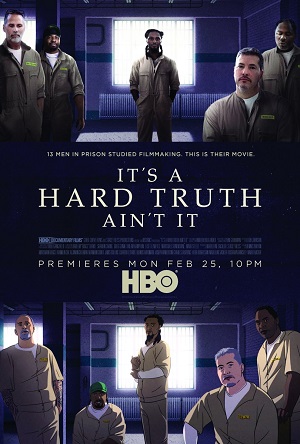 EYE: What attracted you to produce It’s a Hard Truth Ain’t It? It not only explores thirteen maximum security prisoners’ experiences in Indiana, but they actually co-directed the documentary led by Madeleine Sackler.
EYE: What attracted you to produce It’s a Hard Truth Ain’t It? It not only explores thirteen maximum security prisoners’ experiences in Indiana, but they actually co-directed the documentary led by Madeleine Sackler.
STACEY: When Madeleine first approached me with the idea, I was very intrigued by the concept for the project. As far as I know, there has never been a film widely released made from inside a maximum security prison.
By giving the men who are incarcerated the power to tell their own stories, the outcome is incredibly personal and deeply moving.
The documentary structure is a film within a film, so as you watch these men learn filmmaking, including interview skills and camera techniques, you also learn about them as individuals and the choices they made that landed them in prison for life.
The entire process is fascinating to watch. One of my favorite parts is where the men screen different documentaries in the workshop – Murderball, Grizzly Man, Searching for Sugarman – and their observations and critiques are both funny and astute.
EYE: What are you hoping to achieve?
STACEY: I was interested in producing this film to raise awareness about the current situation in our country and to change the way we approach incarceration. I’m not condoning what these men have done, but I do think they deserve an opportunity to tell their stories.
We have the world’s leading incarceration rate – 25% of the world’s prison population is in the U.S. – while we have less than 5% of the world’s population. What I think many people don’t know is that 2/3 of people who are incarcerated will be released.
So we need to understand how to change our approach to violence. Locking people up and throwing away the key is not an effective solution.
EYE: You have covered such a wide range of topics and people from your wonderful Mongolian Eagle Huntress to Hilary Knight who drew Eloise, to now examining the lives of incarcerated men. Do you have a theme that runs through a Stacey Reiss Production, whether you are writing, producing or directing?
STACEY: As a producer, I always want to make films that are engaging, entertaining and cinematic – whether they are shot in Mongolia or behind prison bars. I’m often drawn to stories from people whose voices are underserved or they don’t have the platform to amplify their own message.
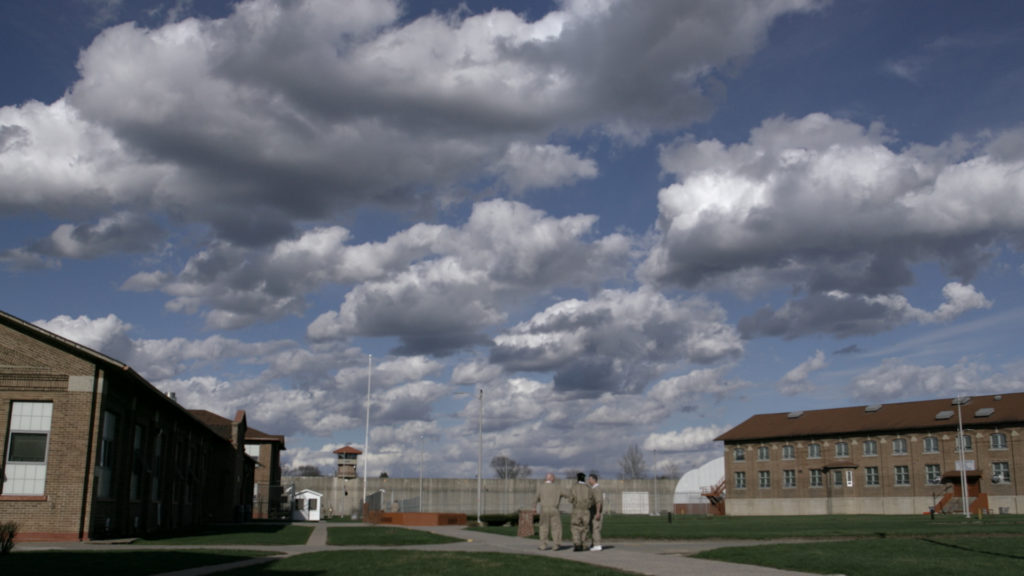
I also like using an individual story to look at a larger topic. In The Diplomat, we focus on the story of the late U.S. Ambassador Richard Holbrooke, as a way to look at American diplomacy from Vietnam to Afghanistan. For Suited, we tell the personal stories of people looking for custom clothing as a way to explore gender and identity.
Mostly, I need to care deeply about my projects as it often takes years to bring them to life on screen.
EYE: How do you choose your projects?
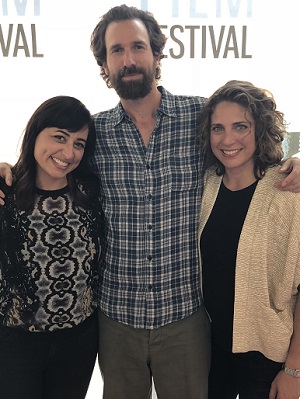
STACEY: Often it’s a gut decision… I’m drawn to the subject matter or I can’t stop thinking about a particular story. I also like challenges – producing a film in Mongolia with a nomadic family or with men who are incarcerated.
Sometimes, the bigger the obstacles, the more I’m drawn to it. I also like working repeatedly with people who I trust and respect.
I produced a number of films with Jenni Konner and Lena Dunham – Suited; It’s Me, Hilary: The Man Who Drew Eloise; and Lenny. Director Richard Shepard and I teamed up on I Knew It Was You; Tokyo Project and The Perfection.
Matt Wolf, who directed It’s Me, Hilary, and I are working on a new feature documentary, which will be completed at the end of the year. When you work with the same team again and again, you start to find a common language, which elevates the work.
EYE: We spoke to Betsy West and Julie Cohen who produced and directed RBG. It was a thoughtful and popular documentary, part of a big year for women and documentaries in general.
STACEY: I was at the Sundance premiere for RBG and sat a few seats away from the Justice herself. Julie Cohen is a friend – we worked together at NBC. I have been rooting her along every step of the way; it’s been so exciting to see the huge response to this love story.
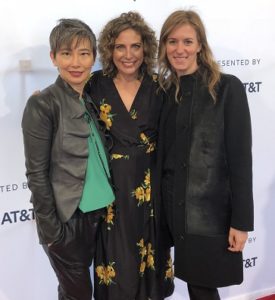
EYE: Do you see a big future for women in making documentaries as well as for subject matter?
STACEY: Many people are calling this time period the “Golden Age of Documentaries” and the recent sale at Sundance of Knock Down the House (also about female candidates running for office) seems to confirm this.
Films about women – by women – will continue to draw audiences. What’s exciting is the success of these films means more financing for these types of projects. But good films are good films whether they are about women or other subjects.
EYE: Is it hard for documentaries to get accepted by various outlets?
STACEY: I wish there were a direct path or a manual for how-to make documentaries. Each film takes on its own life; some are easier than others to finance. Sometimes you can get the access you need, other times it’s more challenging.
As a producer, you need to be nimble, a good problem solver and open to change. Even the landscape for releasing your film can change while you’re in the process of making it. I’ve been very lucky in finding good homes for all of my films.
I’ve had seven projects with HBO so our tastes seem to align. Sony Classics released The Eagle Huntress to a global audience. When you spend so many years making a film, you want people to see it. They have both been fantastic partners.
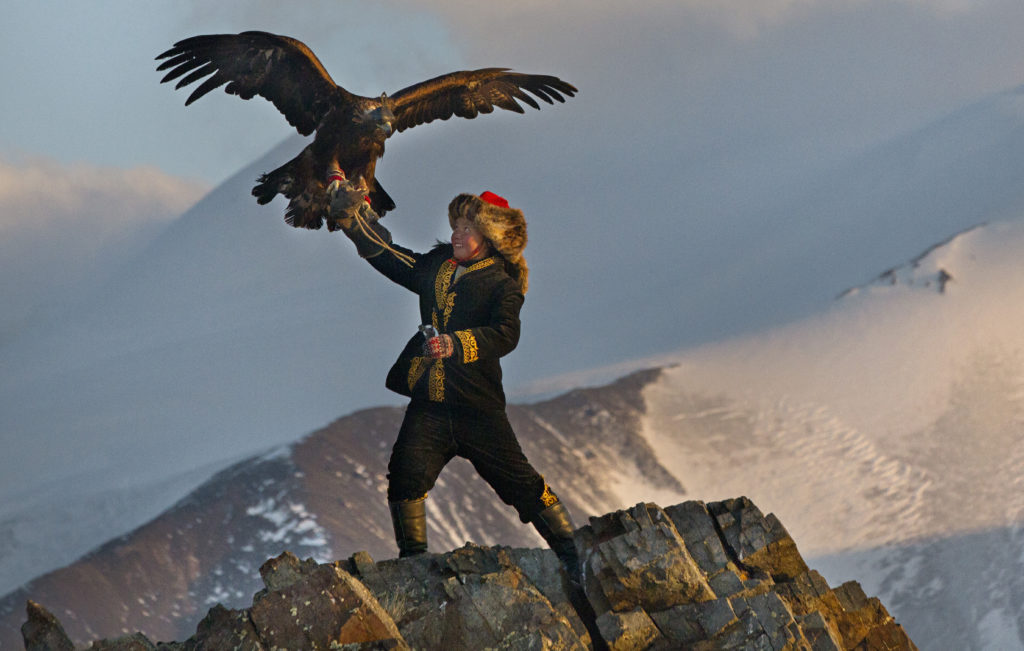
EYE: So, are you more inclined to produce, write or direct at this point? Is there anyone you emulate?
STACEY: I really like producing – my personality is suited to juggling a number of projects at a time – and producing allows me that flexibility and opportunity. I really admire and respect Sheila Nevins who ran HBO Docs forever. She’s a fearless storyteller who really elevated documentary filmmaking and changed the form.
EYE: Have you had any mentors who inspired you?
STACEY: I’ve been very lucky to have a number of mentors over the course of my career. When I was younger my best friend’s mother, Nancy Jacoby, was a television news producer and I was influenced by her to become a journalist.
While I was at Dateline NBC, a supervising producer of mine (Diane Masciale) always seemed to gracefully oversee productions while also raising two children. I like to work with strong leaders and study them – and try to emulate them.
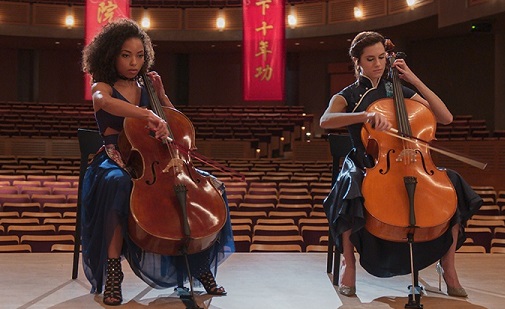
EYE: Do you have advice for up-and-coming filmmakers?
STACEY: Now that I’ve been producing for 20 years, I realize that good bosses and mentors don’t happen all the time so when you see someone who inspires you, pay attention. I truly love the work that I do – it often doesn’t feel like “work.” So, I think the key to success is finding something you are passionate about.
EYE: Do you see documentaries continuing to gain a wider audience appeal?
STACEY: Right now, documentaries are having a revival. It’s no longer a ‘homework assignment’ to watch them and they are pushing boundaries. Look at this year’s Academy Award winner Free Solo. The cinematography is exquisite.
I think a good film is a good film – whether it’s scripted or a documentary, feature length or a short. It’s all about storytelling and finding the most compelling way to tell it.
EYE: What can audiences look forward to from you?
STACEY: The Perfection, a horror thriller, will be on Netflix May 24, 2019. I have a new feature documentary in edit right now. It’s under wraps so I can’t share too much about it. Producing a narrative film was also hugely satisfying and a big challenge and one I’d like to take on again.
I’d like to try my hand at a non-fiction series or a hybrid fiction/non-fiction project. Two of the most interesting films from 2018 wereThe Rider and American Animals because they were so original in their approach.
Mostly, I want to keep exploring form, creating good work and finding new ways to do it…with the people I love to collaborate with.
TWE: Thank you Stacey for your time and insights. You remain remarkable. We look forward to The Perfection and your many productions yet to come.
###
WEBSITE: www.staceyreiss.com
TWITTER: @Stacey_Reiss
FACEBOOK: stacey.reiss



Leave a Reply